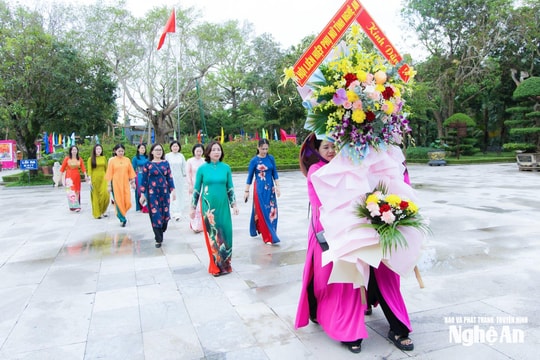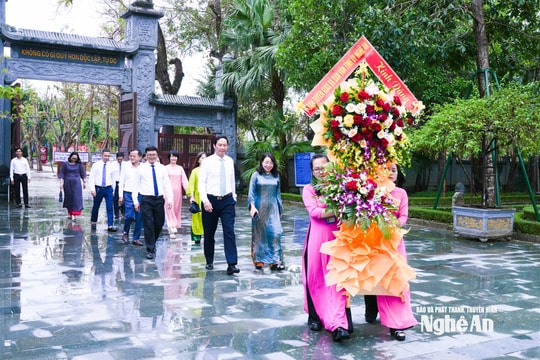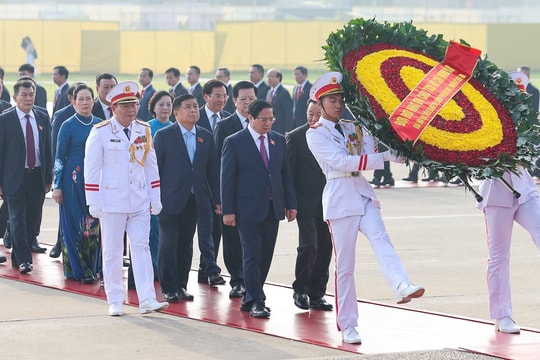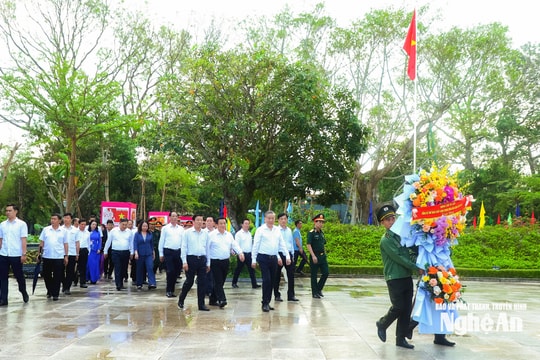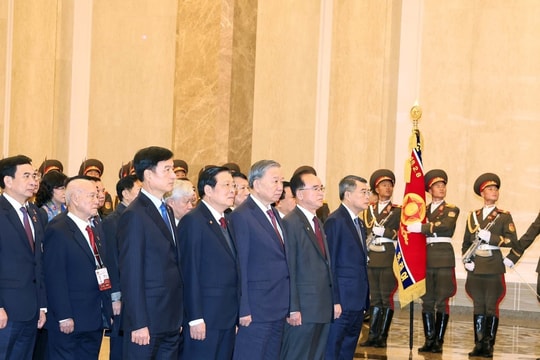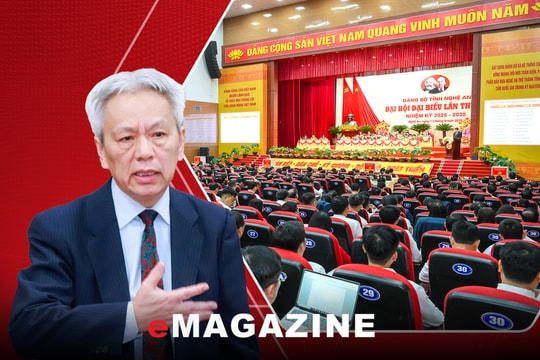President Ho Chi Minh and the ideology of 'Independent Fatherland, Free Religion'
(Baonghean) - For President Ho Chi Minh, he always respected the people's freedom of belief not only in thought but also in concrete actions. For him, respecting freedom of religious belief is a respect with a theoretical, scientific and revolutionary basis; at the same time, it is an important factor in the policy of great national unity.
Right after the announcement of the “Declaration of Independence of the Democratic Republic of Vietnam”, on September 3, 1945, when regulating the reception of representatives of organizations, President Ho Chi Minh wrote: “From this year, I will be very happy to receive representatives of organizations such as: Vietnamese and Chinese newspapers..., Catholicism, Buddhism..., Labor Unions, Farmers' Associations...".
When outlining the urgent tasks of the Democratic Republic of Vietnam, one of the six urgent tasks outlined by Him on September 3, 1945 was: “Colonialism and feudalism implemented a policy of dividing Catholic and non-Catholic compatriots to make it easier to dominate. I propose that our Government declare: “Freedom of belief and unity of Catholics and non-Catholics”. Later, in the “Letter to the Buddhist Association on August 30, 1947” and in the “Concluding remarks at the launching of the Communist Party of Vietnam on March 3, 1951” and many other speeches and articles, He often reaffirmed that stance.
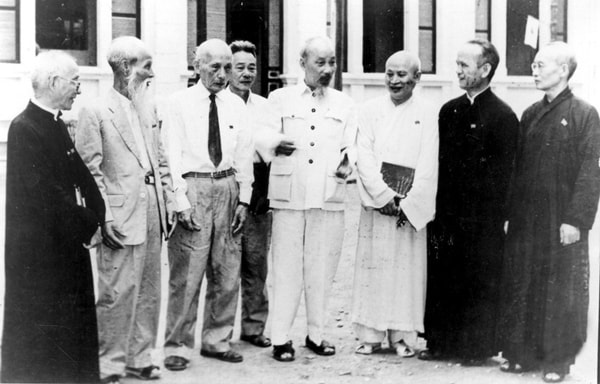 |
| President Ho Chi Minh with religious delegates at the 1st Session of the 2nd National Assembly, July 1960. Photo courtesy |
For Ho Chi Minh, the great national unity, including the great unity between people with beliefs and people without beliefs, between people with different beliefs, are all for the goal of national independence, for the happiness of the people, for the development and perfection of each individual Vietnamese person and for the development of the nation.
“Currently, our Catholic and non-Catholic compatriots nationwide are closely united, unanimous in their thoughts and hearts like children of one family, striving to fight to preserve the independence of the Fatherland. On the battlefield, the blood and bones of Catholic and non-Catholic soldiers have built a great, solid wall to prevent the common enemy, the Western colonialists. All over the country, Catholic and non-Catholic compatriots are using all their forces to help in the resistance war and nation building. This spirit of sacrifice and struggle is to follow the noble spirit of Jesus Christ.”
In his “Speech at the Opening Ceremony of the Viet Minh - Lien Viet Unification Congress” in March 1951, he said: “In this Congress, we have representatives from all walks of life, religions, and ethnic groups, old and young, male and female, truly a family of mutual love. Surely after the Congress, the solidarity and love will develop and strengthen throughout the entire people. With that united force, we will overcome all difficulties and hardships, and we will defeat all imperialist and colonialist enemies.”
Now our people are united, sacrificing their wealth and blood, fighting to the end to maintain the unity and independence of the Fatherland. So we follow the great compassion of Buddha Shakyamuni, fighting to free our race from the suffering of slavery. In the resistance war to save the country, Buddhist compatriots have done much. I thank you and hope you will try harder, try forever until the day the long resistance war is victorious, unification and independence are successful.
President Ho Chi Minh always believed that “Only when the Fatherland is independent, can religion be free”. He always called on “All our compatriots, without dividing between Catholics and Protestants, to unite closely, determined to fight, to protect the country and the Fatherland, and also to preserve the right to freedom of religion”.
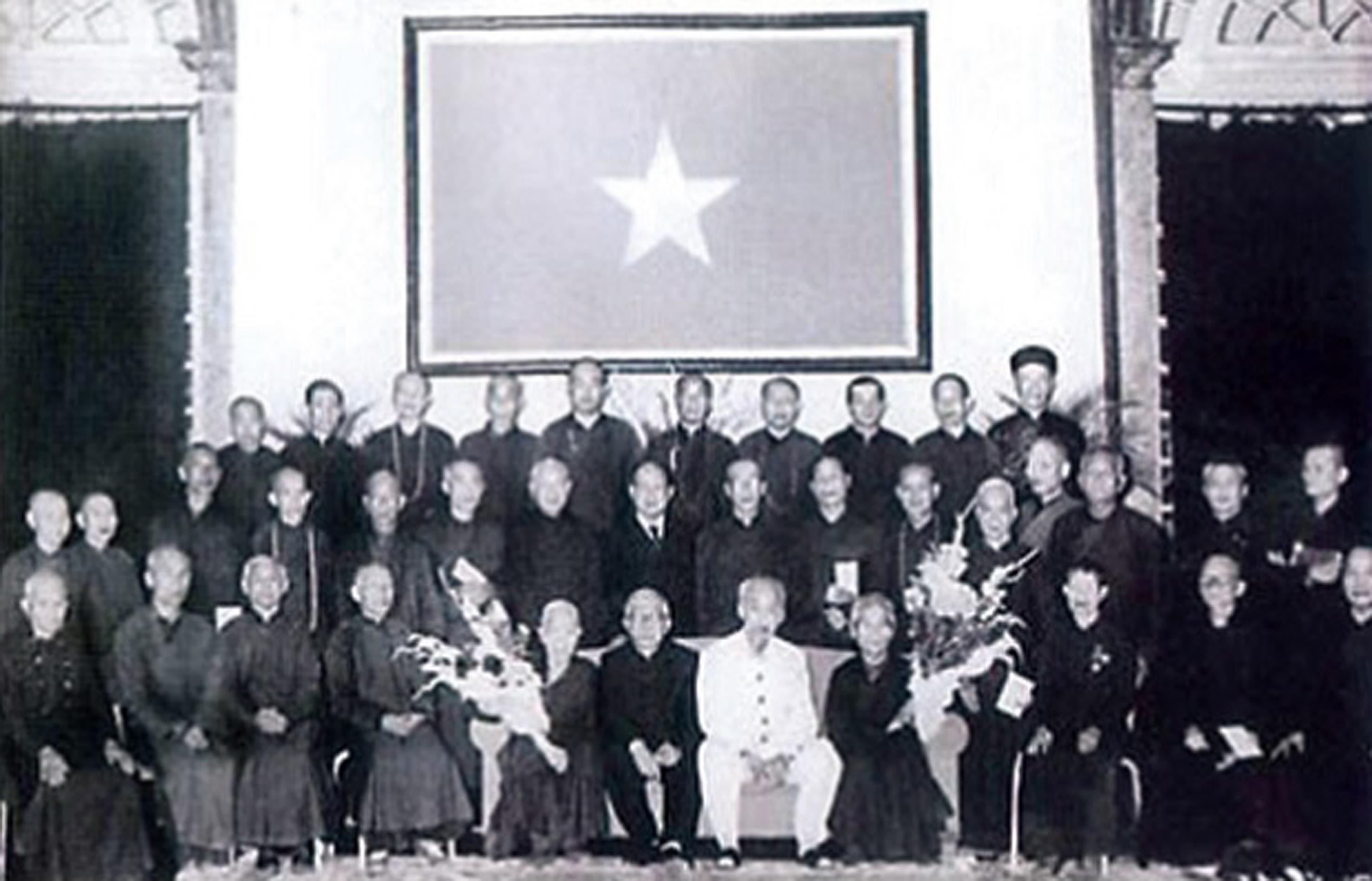 |
| President Ho Chi Minh took a souvenir photo with delegates of the Vietnam Buddhist Sangha, January 3, 1957. Photo courtesy |
The above viewpoint of President Ho Chi Minh affirmed that he always considered the humanistic and humanitarian values of religions as precious cultural and spiritual heritages of the people. He found many similarities in religions, consistent with the goals and ideals of socialism. His viewpoint reminds each of us to have an objective and scientific attitude in order to find the humanistic and humanitarian values in each religion to inherit and promote for the development of the country. Therefore, in his policy of great national unity, the unity of religions is a very important issue, which today still has value in both theory and practice.

.jpg)
